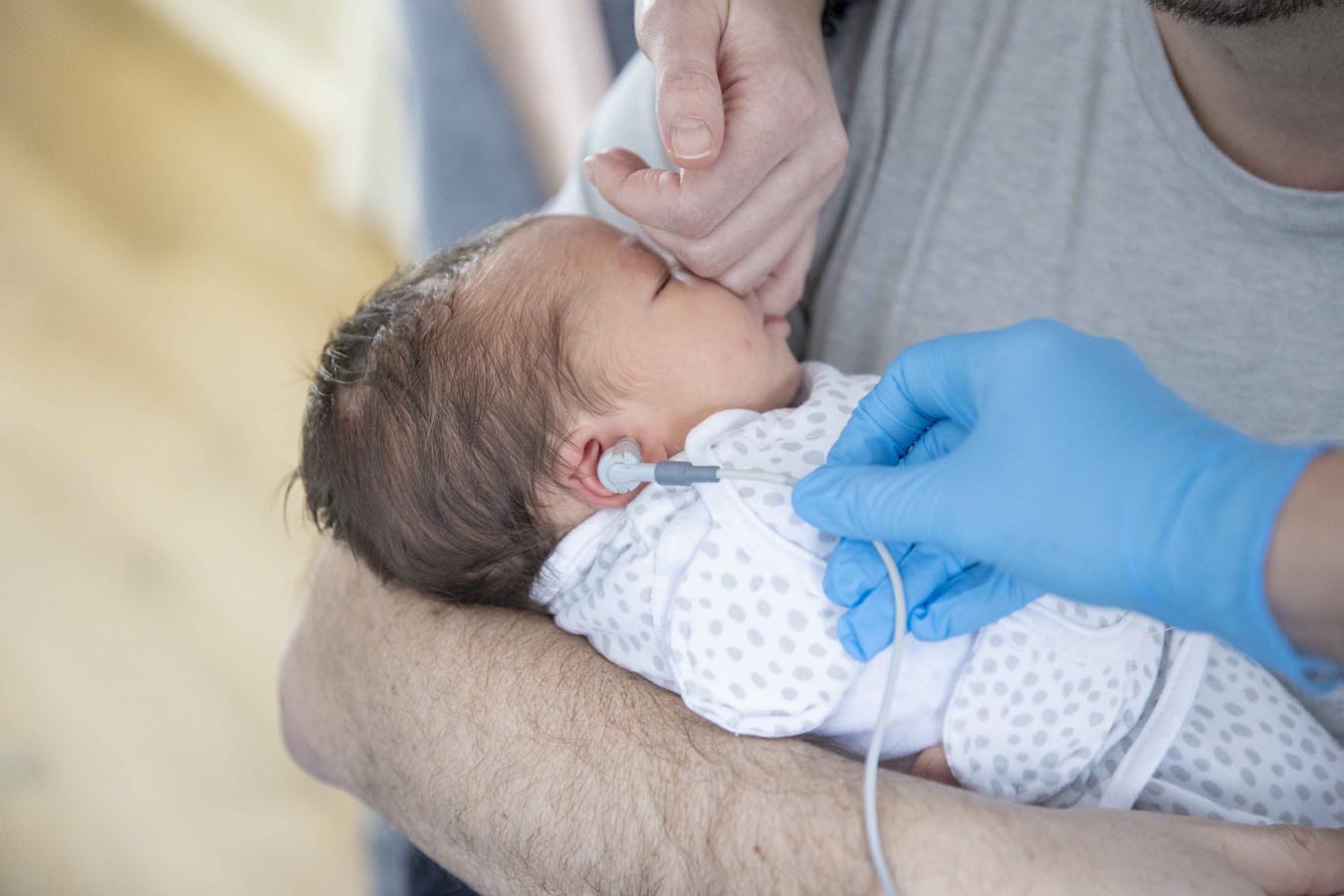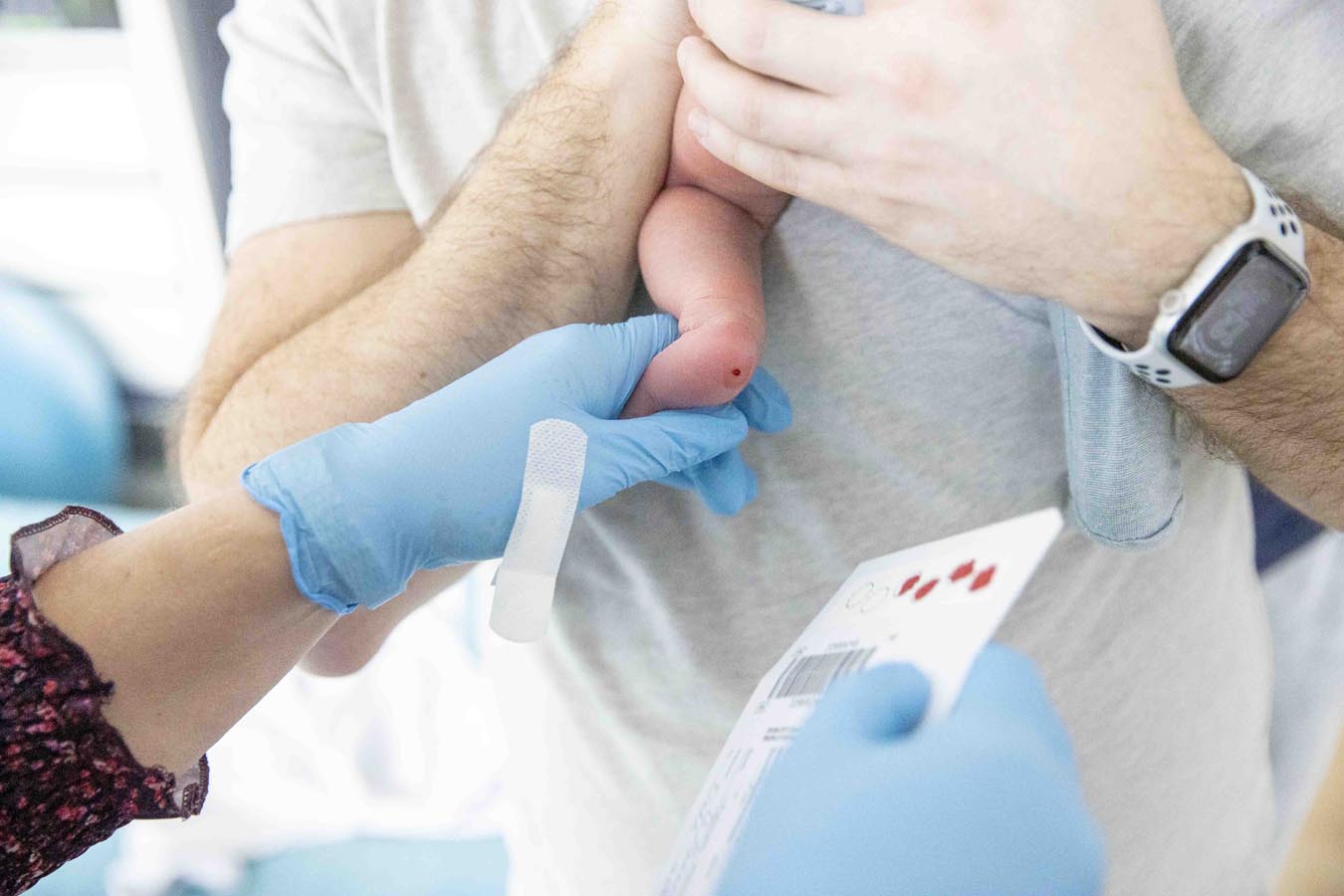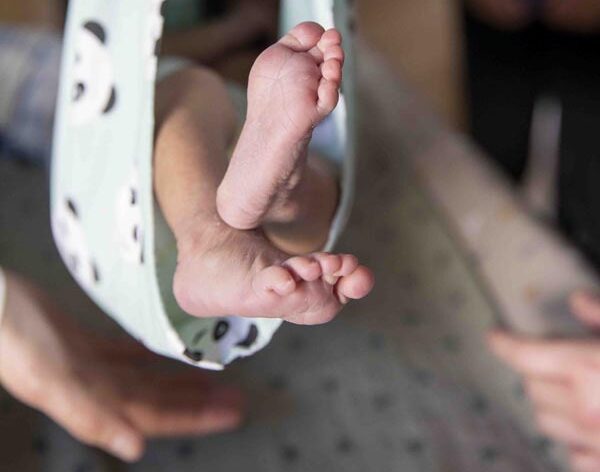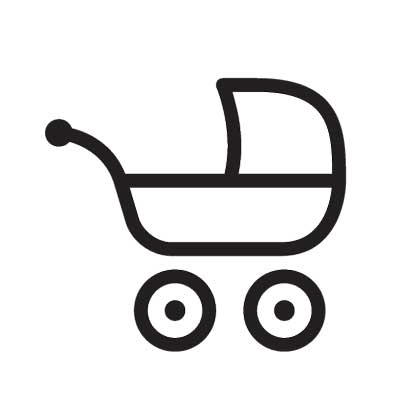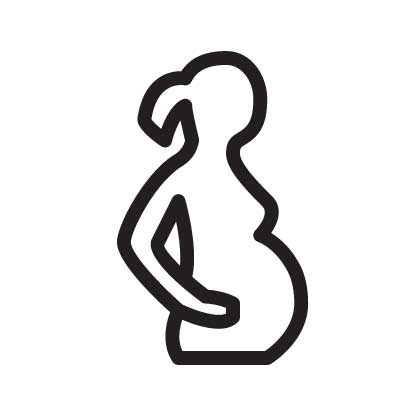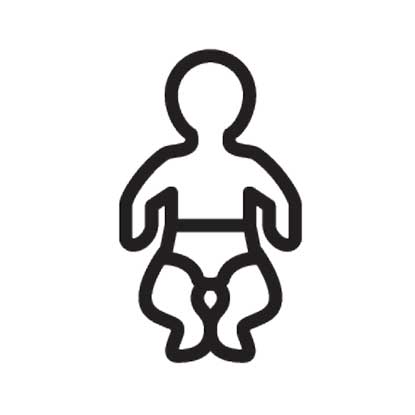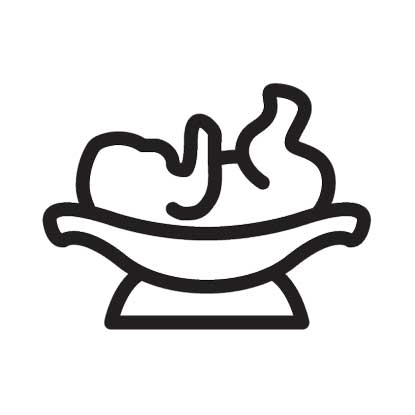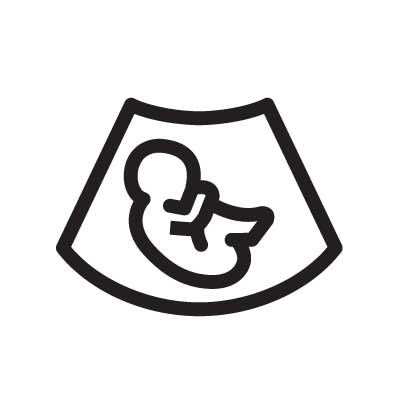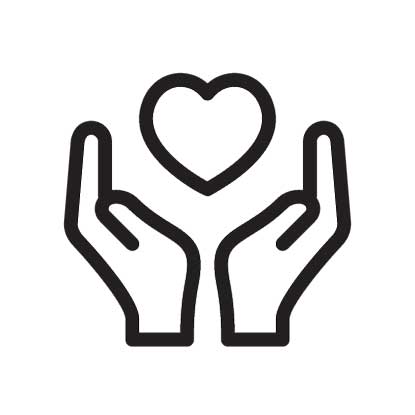First week of the child
Good to know
Nutricion
If you breastfeed your child, try to put your child on your breast every 3 to 4 hours. Of course, you are allowed to do this earlier if the child indicates that it wants to drink (awake, smacking noises, tongue out of its mouth, searching movements with its head). In the beginning it is perfectly normal for the child to drink 10 to 12 times a day. Breastfeeding works on the basis of supply and demand. The more often the child drinks, the more milk will be produced. When breastfeeding is going well, you will start to ‘feed on request’.
If you give formula, the first day you can offer your child 10 to 20 ml every 3 to 4 hours. This amounts will gradually be increased in the following days.
Weight
Sleeping pattern and crying
A new born baby needs 18 to 20 hours of sleep per day. In the beginning a baby wakes up every 2 to 3 hours, also in the night. Especially in the first week, the baby has to get used to life outside the womb. This can cause some hours of crying late in the evening or during the night. This is normal and most of the times things get better by the end of the first week.
For newborn children crying is the only way to show their discomfort. This can be caused by hunger, being cold or too warm, having a full diaper or cramps. Often, they just require attention. Your child was in your belly for 9 months. Inside it was always cradled, heard your heart beat and your intestines growl. Silence, alone in bed, is not what it’s used to.
In the beginning you can not spoil your child. You can not comfort him or hold him too much. Follow your intuition and try to read your child’s signals. Sometimes a baby seems inconsolable and this can make you desperate and make you feel powerless. If things get too much, try to alternate with you partner so the both of you can get some rest.
Appearing Yellow
Heel prick test
When your child is about five days old it will be given a heel prick at your home. By pricking your child’s heel a small amount of blood is taken, which is examined for several diseases. These are diseases that are thankfully quite uncommon, but which are important to recognize at an early stage. In this way, treatment possible treatment can be started in timely fashion. For more information read the brochure ‘Heel prick test and hearing test for new born babies’ or watch a movie on how the heel prick test is done.
Hearing Test
In the first week after birth a hearing test will take place. In general this will occur jointly with the heel prick. This test measures whether or not your child hears enough to be able to learn how to talk.
For more information read the brochure ‘Heel prick test and hearing test for new born babies’ or watch a movie on how the hearing test is done.
Shaken Baby Syndrome
Shaken Baby Syndrome is a consequence of shaking a baby. It can cause serious damage and can even have death as a result. There doesn’t even have to be intense shaking in order for this to happen.
Shaking a child is rarely an act of agression; most of the time a parent acts out of total frustration. This happens for example when a parent experiences a lot of stress, is very tired or if a child cries a lot. Often people are ashamed and don’t seek help.
As parents you shouldn’t be ashamed if you can not deal with certain situations. When there is a time that it is all too much for you, it is better to take some distance, literally get away from the situation. Put your child somewhere safe and walk away. If possible, give the responsibility to someone else temporarily (partner, family, neighbour) so that you can take a breath. And ask for help from your general practicioner or the consultatiebureau.
Youth Health Care
Youth Health Care is a national service, free of charge, that checks the growth and development from children in the age of 0 to 18 years. The first 4 years you and your child visit the children’s health care centre (“consultatiebureau”). A youth doctor and a nurse check for example your child’s overall health, growth, development, speech, hearing, sight and movement. They will administer the vaccinations and you can ask all your questions about raising a child.
In Eindhoven and surroundings GGD provides Youth Health Care for children up to 4 years old. They also have CB4internationals, a children’s health care centre dedicated to the care for internationals.
The consultatiebureau will contact you in the second week after birth.
Tips from your surroundings
Every child is different and unfortunately they don’t come with an instruction manual. During the postpartum period the maternity assistant and us will give you general instructions about taking care of your child. But you will have to discover a lot for yourself. What does this cry mean? How much does my child eat? What is its rhythm? You will be given a lot of, well-meant, advice from your surroundings. It is important to use your own intuition. You’re the child’s parents and know it the best.
Something that is said a lot is that you shouldn’t spoil a child and that it is OK to let them cry. Of course new born babies cry. Often they also have a ‘crying-hour’ somewhere during the day. But know that crying is the only thing a child can do when something bothers him. This can mean that he is hungry, has to be changed, but it can also mean that he just needs some attention. And you can not give them too much attention during the first months! Your child has been inside your belly for 9 months, has always been cradled and has heard your heartbeat and your bowel movements. The transition to being alone in a bed is very big. You can make this transition easier for your child by holding your child a lot and by reacting to his signals. The sooner the baby will know that someone will come when he really needs someone and he can go to sleep at ease.
